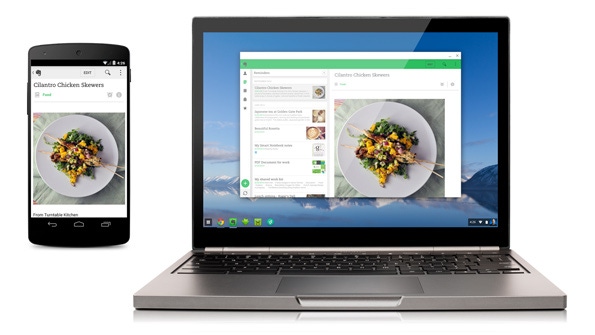First Android Apps Appear on Chrome OSFirst Android Apps Appear on Chrome OS
Google pulls a Windows 8
September 11, 2014

At Google I/O in July, Google announced (among many other things) that it would be bringing Android mobile apps to its Chrome OS. Today, it revealed that the first Android apps have made the leap, and while it's only a handful, it gives us a chance to see what this experience is like.
If the notion of mobile apps running on a desktop OS sounds familiar, you're not alone. As I noted in Google I/O 2014: Android Takes the L, this strategy is reminiscent of Microsoft's controversial decision to commingle mobile and desktop environments in Windows 8. "But then Google went nuts and did a Windows 8: It will be bringing Android apps and games to Chromebook," I wrote. "Mobile apps that work with keyboard and mouse: How innovative."
OK, that was a little snarky. But my attitude problem notwithstanding, Google just made three Android apps available to Chrome OS through the Chrome Web Store. These apps work only on Chrome OS—i.e. not on Chrome for Windows—and require a very recent version of the OS/browser. They are:
Duolingo - a fun and free way to learn a new language before your next trip
Evernote - write, collect and find what matters to you, with a full-size keyboard and touchscreen
Sight Words - a delightful way for you to help improve your child's reading skills
Vine - create short, beautiful, looping videos in a simple and fun way
I'm familiar with the first two in particular, and I coincidentally signed up for Duolingo just last night. So this will be an easy comparison. But what's further interesting is that the new Android-based version of Duolingo is in fact the mobile app, and it supports offline usage. The other Duolingo app in the Chrome Web Store is a web app—i.e. is the duolingo.com web site—and it does not support offline use.
Here's what Duolingo looks like on a Samsung Galaxy S5:
And on Chrome OS:
Put simply, they're the same. The only difference is that the app runs as a window on top of Chrome OS when used on a Chromebook or other Chrome OS device. And of course the resolution difference. (They would be closer if I had an Android tablet to compare.)
I'm curious where this goes. Obviously, Google can't just allow every single Android app into the Chrome Web Store, at least not until touch is a base feature of Chrome OS. And that means a metered release where apps are hand-tested (and possibly modified) before being allowed onto Chrome. And as Google notes, it will be "working with a select group of Android developers over the coming months to add more of your favorite apps so you'll have a more seamless experience across your Android phone and Chromebook."
An interesting first step.
Read more about:
Alphabet Inc.About the Author
You May Also Like






.jpg?width=700&auto=webp&quality=80&disable=upscale)
